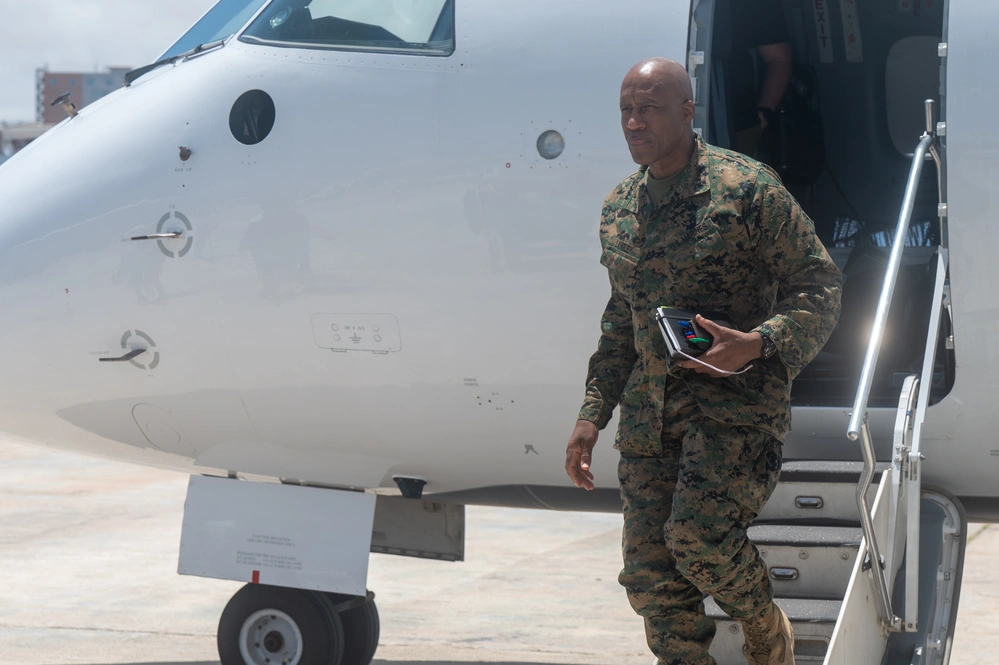Already a subscriber? Make sure to log into your account before viewing this content. You can access your account by hitting the “login” button on the top right corner. Still unable to see the content after signing in? Make sure your card on file is up-to-date.
The United States’ top military official for Africa has confirmed that the US is reassessing the future of its Africa Command (AFRICOM) amid the US moving to scale back its diplomatic and development presence across the continent.
Some shit you should know before you read: If you’re unaware, AFRICOM was established in 2008 as a unified combatant command dedicated solely to US military operations in Africa. Prior to its creation, responsibilities for African military affairs were split among US European, Central, and Pacific Commands, leading to fragmented oversight. Since its creation, AFRICOM has been tasked with coordinating US defense strategy and building military partnerships, enhancing regional stability, and countering the spread of terrorism across the continent. One of its most consistent areas of engagement has been in counterterrorism, particularly in East Africa, where US forces regularly conduct airstrikes targeting al-Shabaab, the al-Qaeda-linked militant group based in Somalia. Beyond direct military action, the US has leveraged investment, particularly through development aid, military training programs, and infrastructure projects, as a strategic tool to deepen ties and embed influence in key African nations. This strategy mirrors, and in some cases competes with, China’s expansive presence on the continent, which has used large-scale infrastructure financing, debt diplomacy, and military partnerships to secure influence and access to critical resources.

What’s going on now: While attending a high-level conference of African defense chiefs in Kenya, AFRICOM commander General Michael Langley confirmed that the United States is reassessing the future of AFRICOM and urged African leaders to voice their positions to Washington. “I’ve talked to a number of ministers of defense and a few presidents and told them we were assessing,” Langley said during a press briefing. He stressed the importance of diplomatic engagement with African partners, stating: “That’s what I tell them. I said: ‘Okay, if we’re that important to (you), you need to communicate that and we’ll see.”
The potential changes under consideration include merging AFRICOM with the US European Command, a move reportedly aimed at streamlining command structures and cutting bureaucracy. Langley did not confirm if a final decision had been made but noted that a formal review was underway.
Langley’s comments in Kenya echoed concerns he previously raised in testimony before Congress. At a Capitol Hill hearing in early 2025, he warned lawmakers that “scaling back US engagement in Africa could create vacuums that others will fill,” specifically referencing China and Russia’s growing presence. He noted that the US has strategic interests in maintaining a robust presence on the continent, particularly amid increasing instability in regions like the Sahel and Horn of Africa. “We see Africa as the epicenter for both al-Qaida and Islamic State,” he testified, citing the surge of terrorism-related activity in West Africa and Somalia.
The reassessment of AFRICOM coincides with broader plans under Trump’s administration to reduce America’s diplomatic footprint. A leaked State Department memo, first reported by The New York Times, revealed proposals to shut down up to 10 US embassies and 17 consulates worldwide—with Africa bearing the greatest share of cuts. Embassies in the Central African Republic, Eritrea, Gambia, Lesotho, South Sudan, and the Republic of Congo are on the closure list, along with consulates in Douala (Cameroon) and Durban (South Africa). The rationale, according to the administration, is to cut costs and refocus diplomatic resources toward so-called “strategic countries.”







